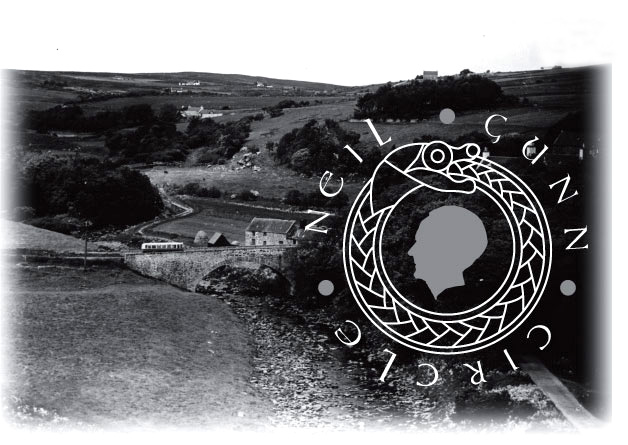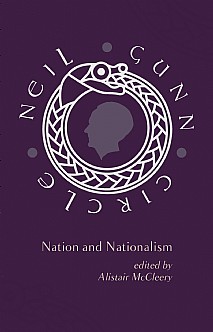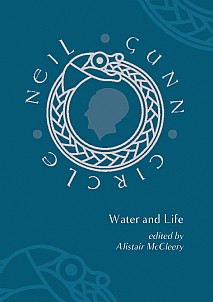
The Neil Gunn Circle Journal aims:
1. To encourage reading and discussion of the works of Neil M Gunn
by providing a thematic focus related to Neil Gunn's work in each issue by opening each issue to a wide range of contributors
2. To encourage new generations of readers of the works of Neil M Gunn
by inviting guest editors on a regular basis to widen the range of contributors to and readership of the Circle by relating the Circle's themes to contemporary ideas and issues.
Inaugural Issue31 October 2013Nation and Nationalism Edited by Alistair McCleery ISBN 978-1-84995-121-0
An appraisal of Scottish nationalism through the lens of Neil M. Gunn's writings and its relevance to the modern debate Represents the definitive introduction to the insights and relationships of Neil M. Gunn, to issues of nation, nationality and nationalism What is perhaps less well known is Gunn's role in the development of contemporary Scottish nationalism as both activist and thinker. Not that he would have agreed to such a division as he believed in a seamless commitment to the goal of a fairer and more equitable Scotland through the delivery of election leaflets and the setting out of the intellectual case for independence. Gunn was instrumental in the foundation of the contemporary SNP, through the bringing together of disparate groups in favour of independence, and continued to play a part in its development and in the development of the Highlands and Islands throughout his life. This collection of essays on Gunn's involvement in politics and his ideas about nation and nationalism represents a guide to both for the reader of his novels and those interested in contemporary political developments in Scotland. Alistair McCleery draws parallels between the situation in 1931, using Gunn's account of it in his diary, and the present day. Michael Russell, Cabinet Secretary for Education and Lifelong Learning, examines Gunn's debt to Ireland, the role of the writer in nationalism, and the need for Scottish literature within the Scottish curriculum. Ewen Cameron, now Professor of History at Edinburgh University, considers the gaps in his own school education in the Highlands and how he was led to fill them through an enthusiastic teacher leading him to Gunn's novels and thereby to the history and culture of his own locality. Dairmid Gunn draws on his intimate knowledge of his uncle to provide an account of his home in Inverness as a centre for lively company and stimulating discussion of art and politics. This picture is reinforced in the late Neil MacCormick's memoir of Gunn and the influence he had on John MacCormick, his father. The collection also contains two of Gunn's essays on writing and politics as well as a complete bibliography of his political writings by Christopher Stokoe. The collection as a whole is timely in its contribution to understanding of Scottish nationalism just under a year before the Scottish people come to decide, as Gunn hoped they would have the opportunity to, on Scotland's future as an independent state or not. See Whittles Publishing Neil Gunn Circle - Nation and Nationalism for details of the Journal.
Water and Life Edited by Alistair McCleery ISBN 978-184995-294-1 Water and Life pursues the goal of the previous volume, Nation and Nationalism, to bridge the often ivory-tower concerns of academic critics and the interest of a wider public in the works and thought of Neil Gunn, considered the foremost Scottish novelist of the twentieth century. The 'circle' in the title reflects its use within Gunn's novels to symbolize both wholeness and the cyclical nature of life. It also represents the group of enthusiasts for Gunn's work that ranges from the energetic volunteers who created and maintain the commemorative centre at Dunbeath in Caithness and those in the Dingwall-based Neil Gunn Trust who actively promote his work to the authors whose own writings owe much to his example and insights. The circle also embraces the scattered community of dedicated readers, within and outwith Scotland, that renews itself with each generation. What is perhaps less well known is Gunn's role in the development of contemporary Scottish nationalism as both activist and thinker. Not that he would have agreed to such a division as he believed in a seamless commitment to the goal of a fairer and more equitable Scotland through the delivery of election leaflets and the setting out of the intellectual case for independence. Gunn was instrumental in the foundation of the contemporary SNP, through the bringing together of disparate groups in favour of independence, and continued to play a part in its development and in the development of the Highlands and Islands throughout his life. Water and Life contains eloquent autobiographical pieces from two of those dedicated readers, Mike Vass and Victoria Bernie, who were inspired in their own work in other media. Mike Vass recounts how he read Gunn's Off in a Boat while recovering from a serious illness and, when better, set out to recreate the voyage himself and then to write in song and music about his own experience. Victoria Bernie was moved by Highland River to record in photographs, reproduced in this volume in full colour, the changing nature of the Girnock Burn. Christopher Stokoe also recalls in his autobiographical account how an almost fortuitous encounter with The Serpent led to a lifetime's devotion to the understanding and promotion of all Gunn's writings. Jim Mather, the former Government Minister, begins also with water as a source of life and industry and, in asking the question of who should own this vital resource, outlines a vision, shared by Gunn, of a successful Scottish society built upon principles of community and cooperation. Alistair McCleery discusses this theme in relation to Gunn's novel, The Green Isle of the Great Deep, and recounts the novelist's promotion of individual freedom, collaboration and community as he articulated his opposition to the statist political thought of Naomi Mitchison. The story of Gunn's relationship with another contemporary novelist, Maurice Walsh, is related by Dairmid Gunn, Neil's nephew, to highlight the influence of both men upon one another as well as the continuing example of Ireland upon the development of Gunn's political thought. This is further illustrated by the inclusion of two of Gunn's essays within this volume. Water and Life offers fresh insights into Neil Gunn's life and work to both readers already passionate and knowledgeable about his writings and those who are coming to him for the first time. The contributors write in an accessible and engaging manner, bringing their topics to life in a manner appropriate to the great novelist himself. See Whittles Publishing Neil Gunn Circle - Water and Life for details of the Journal.
See also: Contact: |